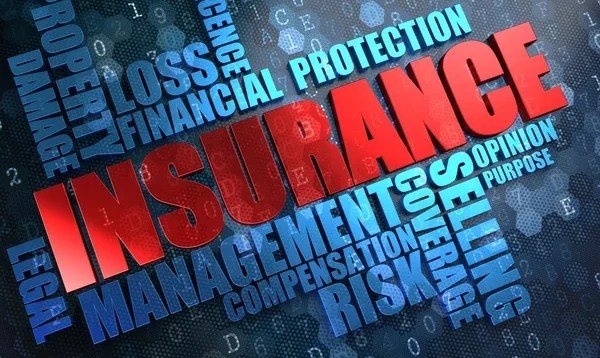In the bustling landscape of entrepreneurship, small businesses stand as the backbone of the economy. Yet, with great endeavor comes significant risk, and that’s where insurance steps in as a shield against unforeseen calamities. Insurance for small businesses isn’t just a safety net; it’s a strategic move to ensure continuity and resilience in a world brimming with uncertainties.
This post delves deep into the essence of protecting your hard-earned venture, shedding light on the intricacies of selecting the right coverage. With “Insurance for Small Businesses,” we navigate the seas of policies, premiums, and protections, offering a lifeline to secure your entrepreneurial dreams against the tides of chance.
How Much Should Small Business Insurance Cost?
When it comes to the cost of insurance for small businesses, it’s important to break down the factors that influence premiums and understand the types of coverage that may be necessary.
Understanding the Variables
The cost of small business insurance is not a one-size-fits-all figure. It varies widely based on several factors including industry type, size of the business, number of employees, and the specific risks associated with the business operations. For instance, a freelance graphic designer might pay less for insurance than a restaurant due to the higher risks of property damage and liability in the food service industry.
Types of Insurance Coverage
Small businesses typically need various types of insurance:
- General Liability Insurance: Protects against common business liabilities such as customer injury or property damage.
- Professional Liability Insurance: Also known as errors and omissions (E&O) insurance, it covers negligence or mistakes in professional services.
- Workers’ Compensation: Required in most states if the business has employees, covering work-related injuries or illnesses.
- Property Insurance: Covers damage to business property due to events like fire or theft.
Each type of insurance contributes to the overall cost and is essential for comprehensive coverage.
Average Cost Estimates
While costs can range significantly, small businesses might expect to pay anywhere from $500 to $3,000 per year for general liability insurance. Professional liability might cost between $500 to $1,000 per year, and workers’ compensation varies greatly depending on payroll and job risks. Property insurance can range from a few hundred to over a thousand dollars annually.
Ways to Save on Insurance
There are strategies to reduce insurance costs:
- Bundling Policies: Purchasing multiple policies from the same provider can often lead to discounts.
- Risk Management: Implementing safety programs and training can reduce the likelihood of filing a claim, which can keep premiums lower.
- Shopping Around: Comparing quotes from different insurers ensures you’re getting the best rate for the coverage you need.
The cost of insurance for small businesses is tailored to the unique aspects of each enterprise. By understanding the variables, knowing what types of coverage are needed, having a grasp of average costs, and employing strategies to save on premiums, small business owners can make informed decisions to protect their ventures effectively and economically.

How to Get Insurance for Small Business?
Acquiring insurance for a small business involves several steps that ensure you get the right coverage for your specific needs. Here’s a detailed guide:
Assess Your Business Risks
Identify the risks associated with your business. This could include property damage, legal liabilities, employee-related risks, and more.
Determine the Coverage Needed
Based on the assessment, determine the types of insurance your business needs. Common types include general liability, professional liability, workers’ compensation, and property insurance.
Shop Around
Contact multiple insurance providers to compare coverage options and rates. Online insurance comparison tools can also be helpful in this process.
Consult with a Professional
Consider speaking with an insurance agent or broker who specializes in commercial insurance. They can provide personalized advice based on your business needs.
Review and Purchase
Carefully review the policy details, ensure they meet your business’s needs, and then proceed with the purchase. Remember to reassess your insurance coverage annually as your business grows or changes.
Insurance Requirement for Small Business
Navigating the terrain of insurance requirements for small businesses can be complex, but understanding these necessities is crucial for safeguarding your enterprise. Here’s a rundown of what you need to know:
Legal and Contractual Obligations
Firstly, identify any legal requirements for your industry. Most states mandate workers’ compensation if you have employees. Additionally, if you lease a business space, your landlord might require liability insurance.
Assessing Business Needs
Evaluate potential risks to determine the best insurance for small businesses in your sector. Consider the nature of your work, the value of your assets, and the potential liabilities you face.
Cost-Benefit Analysis
Weigh the cost of insurance for small business against the potential financial impact of risks. Investing in the right insurance can prevent devastating financial losses in the face of disaster or litigation.
Customized Insurance Solutions
Every business is unique, and so are its insurance needs. Tailor your coverage to fit your specific situation and don’t overpay for unnecessary add-ons.
Remember, the best insurance for small businesses is not just about meeting legal requirements; it’s about ensuring long-term viability by mitigating financial risks. Regularly review your coverage to keep pace with changes in your business and in the market.
What Does Small Business Insurance Cover?
Small business insurance covers a range of potential risks to protect your venture. Here’s how various policies under the umbrella of insurance for small businesses safeguard your interests:
- General Liability Insurance: This is often considered the best insurance for small businesses. It covers legal and medical costs arising from injuries, property damage, or lawsuits related to your business activities.
- Professional Liability Insurance: Also known as errors and omissions insurance, it covers legal fees and damages if your business is sued for professional negligence.
- Property Insurance: This covers damage to your business property due to events like fire, theft, or natural disasters.
- Workers’ Compensation Insurance: Mandatory in most states if you have employees, it covers medical expenses and lost wages for work-related injuries and illnesses.
- Business Interruption Insurance: Compensates for lost income during events that disrupt your business operations.
For those concerned about the cost of insurance for small businesses, it’s worth exploring options for cheap business insurance, which often means customizing policies to match the specific needs and risks of your business, thus avoiding overpaying for unnecessary coverage. Remember, the best policy is one that offers adequate protection at a reasonable cost, aligning with your business’s risk profile and budget.
Best Place to Get Small Business Insurance
Finding the best insurance for small businesses is essential for protecting your venture against various risks. Based on our research and information, here are the top five companies that provide small business insurance in America:
- Chubb: Recognized for its outstanding customer satisfaction, Chubb offers a comprehensive range of insurance products suitable for businesses of all sizes.
- State Farm: As a runner-up for customer satisfaction, State Farm provides diverse insurance options, catering to more than 300 professions with highly customizable policies.
- Travelers: Specialized in workers’ compensation insurance, Travelers is known for its excellent billing solutions and extensive coverage options.
- Nationwide: Nationwide stands out for its general liability insurance, offering a range of endorsements to suit different industry needs.
- Progressive: Renowned for its commercial auto insurance, Progressive is a go-to choice for businesses requiring vehicle coverage.
Each of these companies offers unique strengths, making them a viable choice for businesses looking for the best insurance for small businesses, cost-effective solutions, and reliable coverage.







